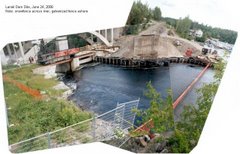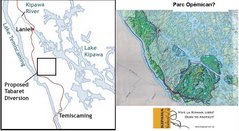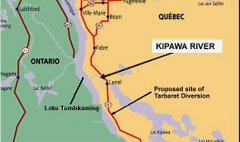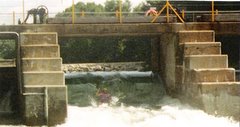To justify its expenditure of $133 million a year on CSE's New Building:
2000 employees had outgrown their current CSE campus and retrofitting and expanding the current campus was found to be cost-prohibitive. CSEC has an annual budget of about $422 million, according to CSEC spokesperson Ryan Foreman.
The business cases examined Crown Construction and Public-Private Partnership models independently validated by Deloitte. It wa determined that P3 transfered all risks around construction and maintenance to the private sector. P3 Canada estimates that over the life-cycle of the contract, the P3 Method will save taxpayers $176 million. Also, as a P3, the facility will be ready 3 years sooner than a more traditional procurement.
The life-cycle cost of $4.1 billion includes all financing, facilities management, most IT equipment and maintenance, and physical security operations for 30 years. No taxpayer dollars are spent until the facility is fully constructed and delivered according to the contract.
Its an open-concept to ensure employees collaborate and work together. Its agreen facility, being built to LEED Gold standards with filtered water available for employees to help them respond to the Government of Canada's security and intelligence priorities.
Omnibus bill C-36, the Anti-terrorism Act recognized CSEC's three-part mandate:
1. provide foreign intelligence
2. protect electronic information and information infrastructures
3. provide technical and operational assistance to federal law enforcement and security agency
4. engage in the war on terrorism
also CSEC provides communications security research and development on behalf of the Government of Canada in fields
CSEC employs code-makers and code-breakers to provide information technology security and foreign signals intelligence services and operational assistance to federal law enforcement and security agencies.
CSEC collects foreign communications signals which originate and terminate abroad.
Decrypts communications such as email, electronic emissions, communications systems, Information Technology systems and networks, and the data and technical information on or related to those systems.
All the above information is called Metadata about CSEC which is data that describes CSEC or information about CSEC not what CSEC does as a matter of routine, for example, we do know that
CSEC collects data about phone numbers, length and time of calls, email addresses and internet routing information but not the extent or substance of the communications monitored. CSEC looks at 'patterns' of communication. Which phone numbers are calling other phone numbers, which IP addresses are accessing other IP addresses to find 'frequent contacts' and then determinine if any of those are persons 'of interest' and thereby developing a 'web' of contacts/associates.
However recently we learned that CSEC had been hacking computers in Brazil's Ministry of Industry.
Its appears to ostensibly be about corporate espionage: ie, not playing nice.
The Deputy Head and Chief of the Communications Security Establishment Canada (CSEC) effective January 30, 2012, Mr. Forster, has a Bachelor of Science from the University of Toronto and a Master of Business Administration from York University. He completed studies in environmental economics at Harvard. His boss is Robert Nicholson MP, Minister of National Defence
was a practising lawyer before entering politics with a law degree from the University of Windsor.
All this may be well and good but Brazil currently takes a dim view of the operations of CSEC under the guidance of Mr. Forster.
They want to know specifically what information Canada collected about the ministry, what the objective of the spying was specifically, what exact methods were used to collect this information and evade the system, stating that it is now Canada's turn to come to Brazil to explain exactly what it has done against Brazil and what kind of espionage it conducted. from CBC
Glen Greenwald admonishes Canadians to ask fundamental questions about CSEC like the following:
Greenwald's clarity of expression seems without comparison in media. He said that Canadians should ask to understand exactly why the Government of Canada would target a Brazilian Ministry with no real responsibility beyond industry and in which Candian industry has a great interest.
My guess is that the matter being discussed is merely the tip of a large iceberg which is comprised of the intelligence agencies of many countries ie:
- the Government Communications Headquarters of the United Kingdom,
- the National Security Agency of the United States,
- the Communications Security Establishment of Canada whose antenna fields at CFB Leitrim on Leitrim Rd near Bank St. in Ottawa have been there for decades
- the Defence Signals Directorate of Australia,
- the Government Communications Security Bureau of New Zealand, and
- the National SIGINT Organisation (NSO) of The Netherlands.
Consider Mahar Arar who was sent to Syria, that bastion of democracy, with the knowledge and acquiescence of Canada, to be tortured.
There is nothing really wrong with the government know about its citizens. Its the preferred situation in my opinion. Some of this data is available widely to all Canadians. See data.gc.ca for more information.
So what is the real problem?




























No comments:
Post a Comment